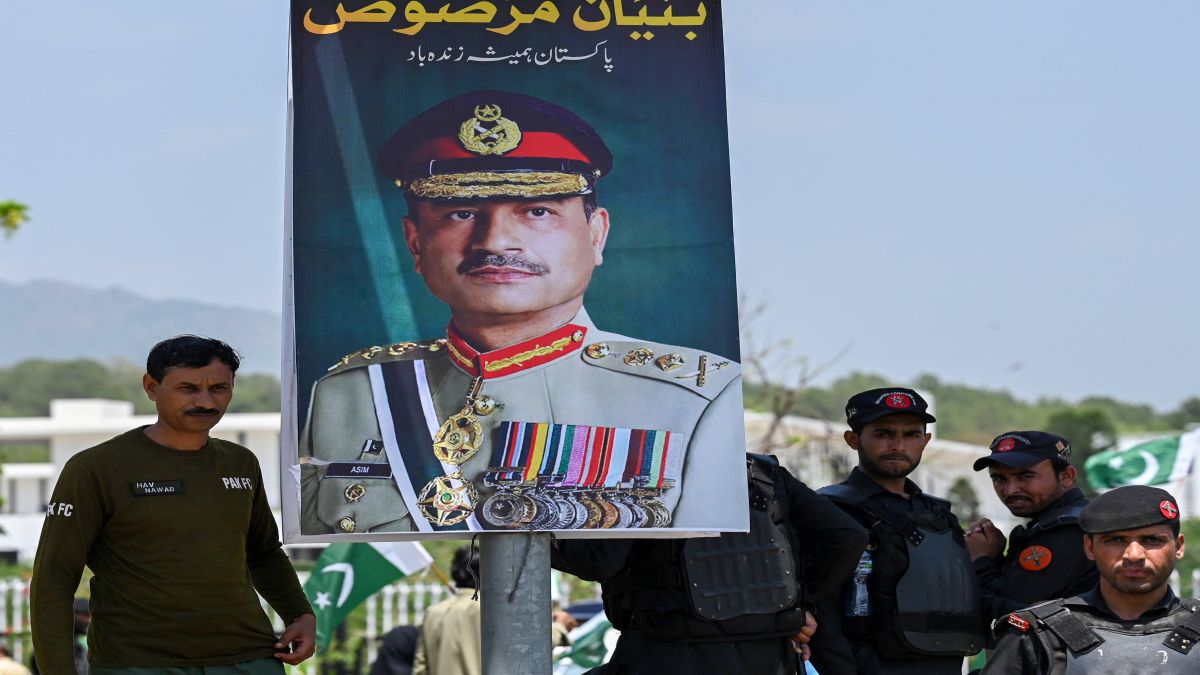A “coup is knocking” has been a favourite mantra for Pakistani politicians over the years — in fact, Islamabad has witnessed multiple military coups since the nation was established. And it seems that Pakistan is once again on the verge of a coup, if rumours are to be believed.
Speculation of a coup have become louder in recent days with independent journalists and analysts noting that Pakistan Army Chief Field Marshal Asim Munir is positioning himself to replace President Asif Ali Zardari.
So, what’s going on? Is India’s neighbouring country on the verge of a transition in power?
Gen Munir pushing for a coup?
In recent weeks, changes and developments are taking place which has given rise to rumours that General Munir is on the verge of orchestrating a coup.
The first such indication, according to Pakistan watchers, is Munir’s elevation to the rank of Field Marshal. In May, the Shehbaz Sharif-led government announced that Pakistan army chief General Asim Munir would be promoted to Field Marshal — making him the second officer in the country’s history to reach the rank. The last and only other Pakistani to hold the rank was General Ayub Khan, who elevated himself to the position in 1959, a year after he assumed the presidency following a military coup.
What made the elevation even more surprising was the timing; Munir was promoted just days after Islamabad suffered a bruising owing to India’s Operation Sindoor — a series of military strikes that were orchestrated in retaliation for the Pahalgam terror attack. The Indian strikes caused significant damage to Pakistani military establishments despite the neighbouring country’s use of Turkish and Chinese-manufactured weapons.
Another hint of a possible coup is Munir’s visit to the White House to meet US President Donald Trump earlier in June. The lunch meeting was the first time a US president hosted the head of Pakistan’s army, widely regarded as the most powerful figure in the country, at the White House unaccompanied by senior Pakistani civilian officials.
Pakistan analysts note that Munir’s lunch with Trump is a sign of his growing power in the country and also indicates that a change is brewing.
Pakistani journalist Ejaz Sayed was quoted as saying, “Efforts are on to oust Asif Ali Zardari. In my opinion, a lot of people want Asif Ali Zardari out. And for this work has begun.
“Attempts are being made to ensure that Zardari himself resigns,” he added.
Such claims are also circulating on X, with one user writing, “Sources say Asim Munir is planning a silent coup against President Asif Ali Zardari all because Zardari backs China on Taiwan, while Munir has secretly shaken hands with the Americans. His goal? Kill CPEC, no matter the cost.”
“The house is divided and someone’s about to be thrown under the bus,” he added.
Bhutto’s remarks a sign of things to come?
Rumours of a coup escalated after former Pakistan Foreign Minister Bilawal Bhutto Zardari in an interview to Al Jazeera indicated that his country had no objection to extraditing “individuals of concern” to India as a confidence-building measure, as long as New Delhi showed willingness to cooperate in the process.
While responding to a question about extraditing Lashkar-e-Taiba (LeT) chief Hafiz Saeed and Jaish-e-Muhammad (JeM) chief Masood Azhar, Bhutto, who serves as the chairman of the Pakistan People’s Party, said: “As part of a comprehensive dialogue with Pakistan, where terrorism is one of the issues that we discuss, I am sure Pakistan would not be opposed to any of these things.”
Soon after, Hafiz Saeed’s son, Talha Saeed, issued a public response, saying Bhutto was “not a true Muslim” and demanded an apology. “We hope our patriotic media will critically discuss Bhutto’s statement… whose family and party have a history of toeing Western and Indian narratives against Pakistan and, on instances, providing them with critical information harming national security,” said Talha.
Many believe that the row emerging from Bilawal Bhutto’s remarks are a result of backdoor power deals and shifting political allegiances.
Has Pakistan witnessed coups in the past?
These rumours of a military coup by Munir also coincide with the anniversary of General Zia’s power grab in 1977. On July 5 that year, General Zia ul-Haq led a military coup against Pakistan Prime Minister Zulfikar Ali Bhutto, code-named ‘Operation Fair Play’. He put Bhutto under house arrest, imposed martial law, suspended the constitution and banned political parties.
But that isn’t the only upheaval that Pakistan has seen over the years. In 1958, then-Pakistan President Iskander Mirza declared martial law and appointed General Ayub Khan as Chief Martial Law Administrator. Mirza believed that Ayub would remain a loyal subordinate while he continued to pull the strings from the presidency. Instead, Ayub moved fast. He assumed the presidency himself, becoming Pakistan’s first military ruler.
Then in 1999, Pakistan army chief Pervez Musharraf seized power in a bloodless coup. He was sworn in as president and head of state in June 2001. He continued in power until 2008, which led to Asif Ali Zardari taking over as president.
No one knows what will happen in Islamabad and Rawalpindi, but one thing is certain: all eyes are trained on Zardari as well as Munir and their next possible steps.
With inputs from agencies


)

)
)
)
)
)
)
)
)



